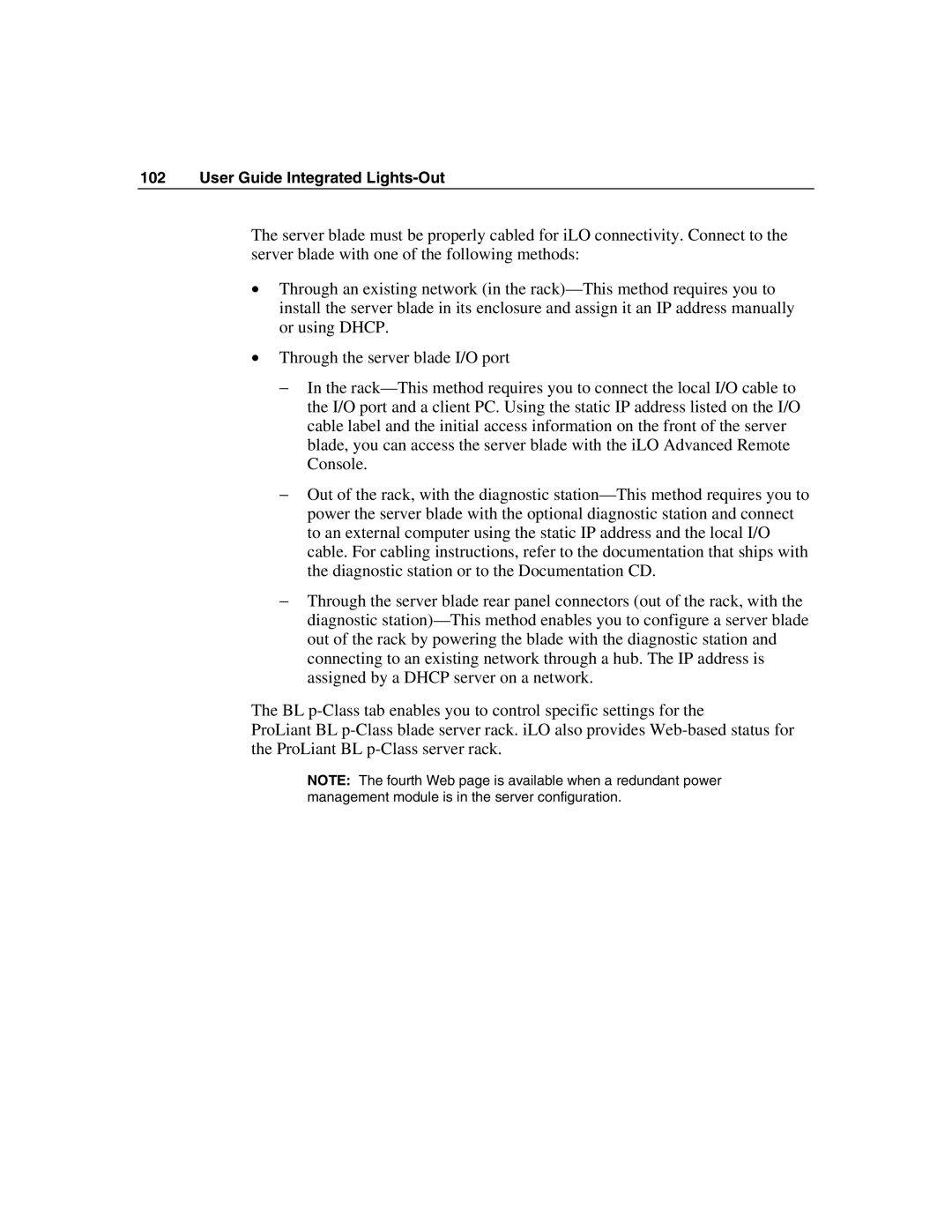102 User Guide Integrated Lights-Out
The server blade must be properly cabled for iLO connectivity. Connect to the server blade with one of the following methods:
•Through an existing network (in the
•Through the server blade I/O port
−In the
−Out of the rack, with the diagnostic
−Through the server blade rear panel connectors (out of the rack, with the diagnostic
The BL
ProLiant BL
NOTE: The fourth Web page is available when a redundant power management module is in the server configuration.
